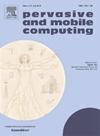EPCM:基于数据完整性的电动汽车高效隐私保护充电匹配方案
IF 3.5
3区 计算机科学
Q2 COMPUTER SCIENCE, INFORMATION SYSTEMS
引用次数: 0
摘要
与传统充电站相比,车对车(V2V)充电模式可以扩大充电网络的覆盖范围,有望成为未来电动汽车充电的重要补充方式。然而,充电匹配中的位置隐私泄露问题已成为用户关注的焦点之一。为解决这一问题,我们提出了一种高效的隐私保护充电匹配方案,命名为 EPCM,它能在不损害车辆位置隐私的情况下确保数据完整性。首先,我们利用改进的 Paillier 密码系统和基于身份的批量签名来实现位置隐私和数据完整性。其次,我们的方案以逐轮方式运行,确保任务立即完成,并允许车辆动态加入或离开。安全证明和分析表明,EPCM 可以实现保密性、位置隐私性、身份验证和数据完整性等安全特性。此外,通过大量实验,实验结果表明我们的方案在计算和通信开销以及总传输延迟方面表现出色。本文章由计算机程序翻译,如有差异,请以英文原文为准。
EPCM: Efficient privacy-preserving charging matching scheme with data integrity for electric vehicles
Compared to traditional charging stations, the Vehicle-to-Vehicle (V2V) charging mode can expand the coverage of the charging network and is expected to become an important supplementary method for future electric vehicle charging. However, the leakage of location privacy in charging matching has become one of the main concerns of users. To tackle this problem, we propose an efficient privacy preserving charging matching scheme, named EPCM, which ensures data integrity without compromising the location privacy of vehicles. Firstly, we utilize the modified Paillier cryptosystem and identity based batch signature to achieve location privacy and data integrity. Secondly, our scheme operates in a round-by-round manner, ensuring immediate task completion and allowing vehicles to dynamically join or leave. The security proof and analysis indicates that EPCM can achieve security features including confidentiality, location privacy, authentication, and data integrity. Furthermore, by carrying out extensive experiments, the experimental results demonstrate that our scheme performs excellently in terms of computational and communication overhead, as well as total transmission delay.
求助全文
通过发布文献求助,成功后即可免费获取论文全文。
去求助
来源期刊

Pervasive and Mobile Computing
COMPUTER SCIENCE, INFORMATION SYSTEMS-TELECOMMUNICATIONS
CiteScore
7.70
自引率
2.30%
发文量
80
审稿时长
68 days
期刊介绍:
As envisioned by Mark Weiser as early as 1991, pervasive computing systems and services have truly become integral parts of our daily lives. Tremendous developments in a multitude of technologies ranging from personalized and embedded smart devices (e.g., smartphones, sensors, wearables, IoTs, etc.) to ubiquitous connectivity, via a variety of wireless mobile communications and cognitive networking infrastructures, to advanced computing techniques (including edge, fog and cloud) and user-friendly middleware services and platforms have significantly contributed to the unprecedented advances in pervasive and mobile computing. Cutting-edge applications and paradigms have evolved, such as cyber-physical systems and smart environments (e.g., smart city, smart energy, smart transportation, smart healthcare, etc.) that also involve human in the loop through social interactions and participatory and/or mobile crowd sensing, for example. The goal of pervasive computing systems is to improve human experience and quality of life, without explicit awareness of the underlying communications and computing technologies.
The Pervasive and Mobile Computing Journal (PMC) is a high-impact, peer-reviewed technical journal that publishes high-quality scientific articles spanning theory and practice, and covering all aspects of pervasive and mobile computing and systems.
 求助内容:
求助内容: 应助结果提醒方式:
应助结果提醒方式:


